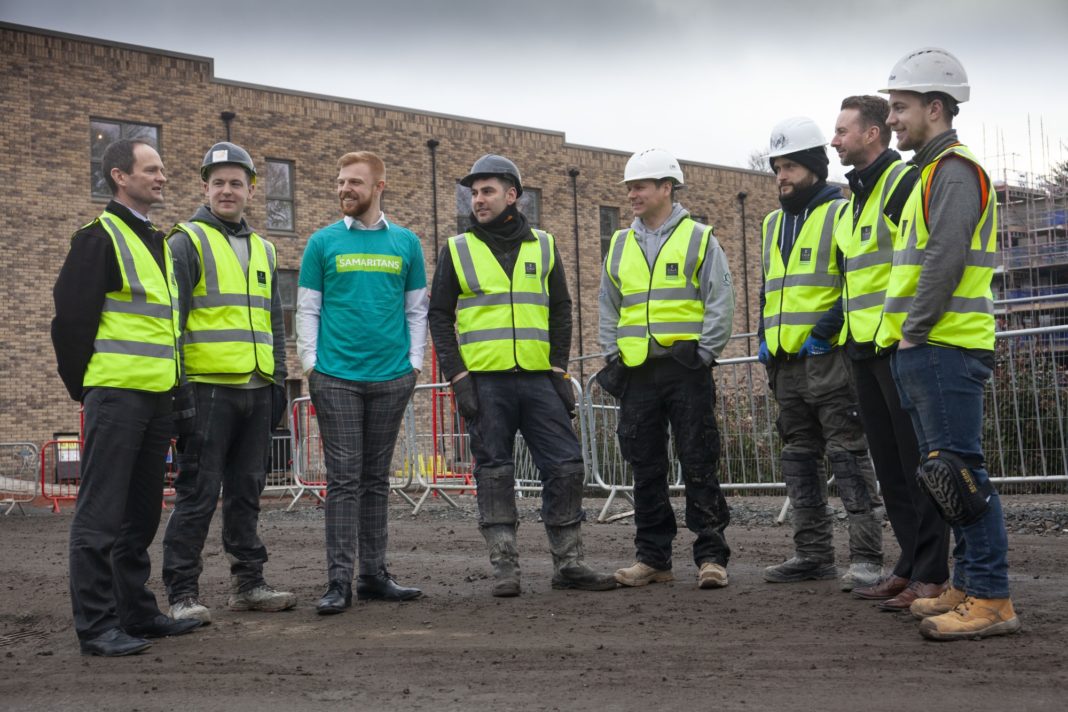
CALA Group has launched a fundraising partnership with Samaritans, which aims to support the charity’s work across the UK and strengthen employee mental health and wellbeing at the housebuilder.
As well as committing corporate donations to the charity, CALA employees from its head offices and nine local businesses across England and Scotland will fundraise for Samaritans through a variety of individual and team activities – with some already signed up for events such as the London Marathon and Kiltwalk in Scotland.
In turn, Samaritans will provide listening and emotional resilience training to help equip CALA’s 1,200 staff – as well as employees of its subcontractors – with the skills to take care of their own wellbeing as well as being aware of their coworkers.
CALA said the partnership launches following Samaritans’ call for better mental and emotional health support for middle-aged men, one of the most high-risk groups for suicide.
Kevin Whitaker, chief executive at CALA Homes said, “It’s a privilege to play a part in helping Samaritans to reach more people in need. No one knows when they might need Samaritans and our backing will help to make their vital services even more accessible to people across the UK, who are struggling to cope.
“Mental health is as important as physical health and for our own staff and subcontractors – who are at the very heart of our business – Samaritans’ emotional resilience training will be invaluable, and this forms part of a wider strategy to support employee wellbeing at CALA. This partnership is also an opportunity for us to raise awareness of the challenge we face within the construction industry with regards to mental health.”
Matthew Lock, head of corporate partnerships at Samaritans added, “We know workers within the construction industry can be more at risk of suicide. With CALA’s support, we will be able to help equip staff with techniques, tools and resources that support their emotional wellbeing and create a culture where people feel that they can get support if they need it. This partnership will also help us continue to be there for anyone who is struggling to cope. Together we will save lives.”









